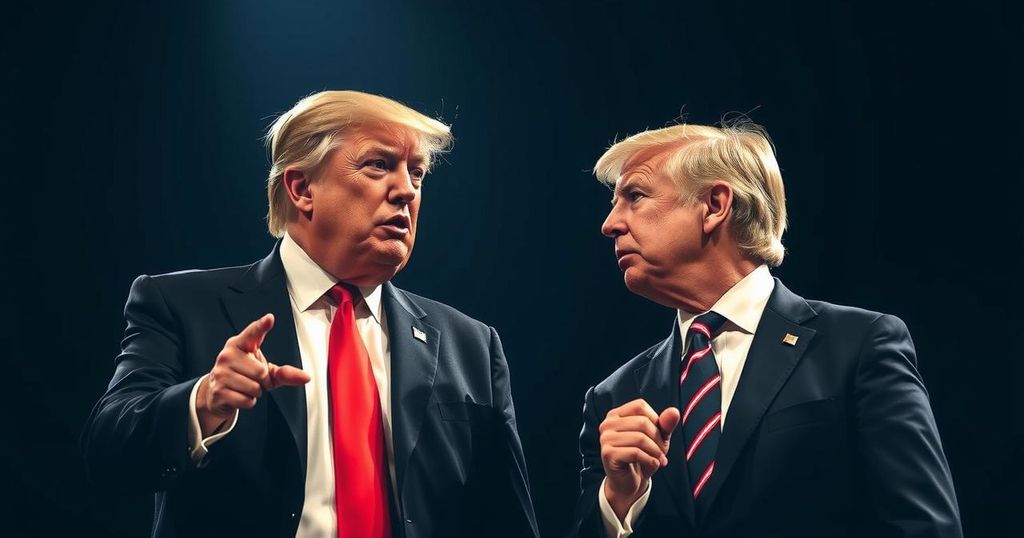The article asserts that the United States has lost its technological lead to China due to unfavorable current policies. It emphasizes the importance of empowering startups and small businesses for innovation, proposing that Donald Trump and JD Vance can facilitate much-needed reforms compared to the Biden-Harris administration’s restrictive approach to emerging technologies.
At the conclusion of the 20th century, the United States enjoyed a position of unparalleled technological supremacy; however, by the 21st century, this dominance has diminished significantly. Currently, China is in the lead in 37 out of 44 critical technologies expected to shape future industries. The success of America’s economy and its national security hinges on reclaiming this technological edge through a renewed innovation policy targeting startups and small businesses, which have historically driven groundbreaking advancements. Donald Trump and JD Vance are positioned to advocate for this essential reform, with Vance’s background in venture capital providing insight into the obstacles faced by emerging companies.
In stark contrast, should Vice President Kamala Harris attain the presidency, it is anticipated she would perpetuate the current administration’s antagonism towards innovators and new technologies. The Biden-Harris administration has implemented restrictive measures against blockchain and cryptocurrency while introducing a notably excessive executive order regulating artificial intelligence. Additionally, an agreement at the World Trade Organization allows countries to forfeit patent protections on mRNA technology, thereby compromising American intellectual property developed by domestic biotech firms.
Recent statistics underscore a trend of decreasing American innovation. For the first time in 2022, foreign inventors received a greater number of patents than their American counterparts. The patent issuance also reflects a disproportionate distribution, with Chinese inventors obtaining an estimated four times the global artificial intelligence patents than those from the United States. Furthermore, the U.S. now produces merely 10% of globally used semiconductor chips, despite having initially pioneered silicon technology. Such alarming trends threaten the future of American economic prosperity.
Addressing the plight of smaller firms is crucial as they are often the crucibles for transformative innovation; historic examples such as Thomas Edison and the Wright Brothers illustrate how small businesses are frequently the breeding grounds for revolutionary advances. Indeed, companies with lesser employee counts generate a notable volume of patents compared to larger corporations. As such, promoting small businesses is indispensable. The Trump platform acknowledges this imperative, advocating for policies that prioritize small enterprises and working individuals.
The commitment to foster innovation, specifically through the empowerment of startups, includes a promise to reverse detrimental regulations imposed on burgeoning industries like cryptocurrency and artificial intelligence. Furthermore, the aim to transform America into a manufacturing leader hinges on eliminating bureaucratic regulations that inhibit job creation and technological progress.
JD Vance’s understanding of the startup ecosystem enables him to navigate solutions aimed at balancing venture capital investment across all U.S. states, rather than restricting it to economic hubs like California and New York. Additionally, the Small Business Administration could regain its pivotal role in championing innovative companies nationwide by enhancing its core mission, which includes simplifying processes and increasing funding accessibility.
Under President Trump, the National Institute for Standards and Technology (NIST) would work to ensure that American technological standards remain globally prominent and that innovations from academia can effectively transition into industry applications. The entity would also aim to protect against escalating nationalization threats to innovation. Such strategies could revitalize American entrepreneurship and restore faith in the innovation economy.
In conclusion, the United States must implement strategic policy reforms that empower entrepreneurs and amplify small businesses, thereby rekindling its competitive edge in global innovation. The historical legacy of American inventiveness must be reignited through a concerted, nationwide effort to support the innovation landscape across all communities, solidifying America’s position at the forefront of technological advancement once more.
The article discusses the decline of American technological leadership since the late 20th century, noting that the United States has fallen behind competitors such as China in crucial fields of technology. The premise is that to reclaim its status, America must develop an innovation policy that emphasizes support for startups and small businesses, which are essential for breakthrough innovations. It juxtaposes the proposed policies of Donald Trump and JD Vance with the current administration’s policies, arguing that a different approach is needed to invigorate the American economy and foster a competitive technological environment.
In summary, the United States remains at a critical juncture regarding its technological competitiveness. To reverse the current trends of diminished innovation and dependency on foreign powers, new policy frameworks that support entrepreneurs and small businesses are essential. The future of America’s prosperity depends on reinstating its role as a leader in innovation and technological development, positioning itself favorably for the decades to come.
Original Source: fortune.com






